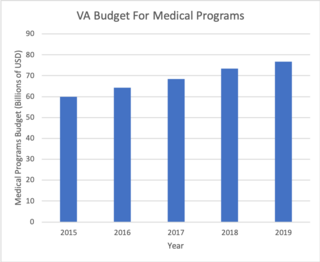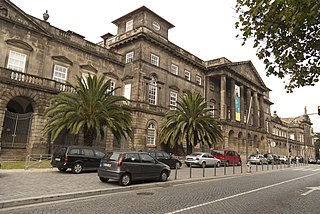This is a list of hhospitals in Uruguay.
This is a list of hhospitals in Uruguay.
Most public hospitals in Uruguay are managed by the State Health Services Administration. In the case of Montevideo, of the nine state hospitals, the vast majority are managed by the State Health Services Administration, with the exception of the university hospital, the Canzani sanatorium and those reserved for the care of personnel from the armed forces, police and injured workers.
| Imagen | Date | Name | ||
|---|---|---|---|---|
 | 1953 | Hospital de Clínicas | University hospital | University of the Republic |
 | 1825 | Hospital Maciel | General hospital | State Health Services Administration |
 | 1880 | Hospital Vilardebó | Psychiatric hospital | |
 | 1908 | Hospital Pereira Rossell | Pediatric hospital | |
 | 1909 | Spanish Hospital | General hospital | |
| 1928 | Hospital Saint Bois | General hospital | ||
| Hospital Piñeyro del Campo | Geriatric hospital |
There are also departmental hospitals, and a set of primary care centers, with emergency services and family medicine. In the case of the department and city of Montevideo, there is a network of 95 state polyclinics distributed in different neighborhoods of Montevideo. To this are added the 21 neighborhood polyclinics, managed by the Department of Health of the Municipality of Montevideo, these are mostly located in neighborhoods with critical contexts. There are also maternal and child centers, today called the Bank of Social Security.
There are also, and mainly in Montevideo, a set of medical assistance corporations. Which are called mutualists.
| Date | Name | Locality | Date |
|---|---|---|---|
| 1857 | British Hospital | Montevideo | |
| 1858 | Italian Hospital of Montevideo | ||
| CASMU | |||
| Médica Uruguaya | |||
| Asociación Española | |||
| Cantegril Sanatorium | Maldonado | ||
| Sanatorium Mautone | |||
| Evangelical Hospital | Montevideo | ||
| Catholic Circle of Workers | |||
| American Sanitarium |
The history of Uruguay comprises different periods: the pre-Columbian time or early history, the colonial period (1516–1811), the period of nation-building (1811–1830), and the history of Uruguay as an independent country (1830).

Uruguay is a country in the southeastern region of South America, bordering the Atlantic Ocean, between Argentina and Brazil. It is located in the Southern Hemisphere on the Atlantic seaboard of South America between 53 and 58 west longitude and 30 and 35 south latitude. It is bordered to the west by Argentina, on the north and northeast by Brazil, and on the southeast by the Atlantic Ocean, which makes up Uruguay's coast.

Montevideo is the capital and largest city of Uruguay. According to the 2011 census, the city proper has a population of 1,319,108 in an area of 201 square kilometers (78 sq mi). Montevideo is situated on the southern coast of the country, on the northeastern bank of the Río de la Plata.
In the United States, a health maintenance organization (HMO) is a medical insurance group that provides health services for a fixed annual fee. It is an organization that provides or arranges managed care for health insurance, self-funded health care benefit plans, individuals, and other entities, acting as a liaison with health care providers on a prepaid basis. The Health Maintenance Organization Act of 1973 required employers with 25 or more employees to offer federally certified HMO options if the employer offers traditional healthcare options. Unlike traditional indemnity insurance, an HMO covers care rendered by those doctors and other professionals who have agreed by contract to treat patients in accordance with the HMO's guidelines and restrictions in exchange for a steady stream of customers. HMOs cover emergency care regardless of the health care provider's contracted status.

The Veterans Health Administration (VHA) is the component of the United States Department of Veterans Affairs (VA) led by the Under Secretary of Veterans Affairs for Health that implements the healthcare program of the VA through a nationalized healthcare service in the United States, providing healthcare and healthcare-adjacent services to Veterans through the administration and operation of 146 VA Medical Centers (VAMC) with integrated outpatient clinics, 772 Community Based Outpatient Clinics (CBOC), and 134 VA Community Living Centers Programs. It is the largest division in the Department, and second largest in the entire federal government, employing over 350,000 employees. All VA hospitals, clinics and medical centers are owned by and operated by the Department of Veterans Affairs as opposed to private companies, and all of the staff employed in VA hospitals are government employees. Because of this, Veterans that qualify for VHA healthcare do not pay premiums or deductibles for their healthcare but may have to make copayments depending on what procedure they are having. VHA is distinct from the U.S. Department of Defense Military Health System of which it is not a part.

A clinic is a health facility that is primarily focused on the care of outpatients. Clinics can be privately operated or publicly managed and funded. They typically cover the primary care needs of populations in local communities, in contrast to larger hospitals which offer more specialised treatments and admit inpatients for overnight stays.

Swedish Health Services, formerly Swedish Medical Center, is the largest nonprofit health provider in the Seattle metropolitan area. It operates five hospital campuses, ambulatory care centers in the cities of Redmond and Mill Creek, and Swedish Medical Group, a network of more than 100 primary-care and specialty clinics. It is affiliated with many other health care providers across Washington state, and had 8,886 employees and 6,023 credentialed physicians as of 2013.

A dispensary is an office in a school, hospital, industrial plant, or other organization that dispenses medications, medical supplies, and in some cases even medical and dental treatment. In a traditional dispensary set-up, a pharmacist dispenses medication per the prescription or order form. The English term originated from the medieval Latin noun dispensaria and is cognate with the Latin verb dispensare, 'to distribute'.

The National Healthcare Group (NHG) is a group of healthcare institutions in Singapore. The group was formed in 2000 and operates several hospitals, national specialty centres, and polyclinics. Tan Tock Seng Hospital is the largest hospital in the group and serves as the flagship hospital for the cluster.

Healthcare in Portugal is provided through three coexisting systems: the National Health Service, special social health insurance schemes for certain professions and voluntary private health insurance. The SNS provides universal coverage, although in 2012 measures were implemented to ensure the sustainability of the service by the introduction of user fees to be paid for at the end of treatments. In addition, about 25% of the population is covered by the health subsystems, 10% by private insurance schemes and another 7% by mutual funds. The Ministry of Health is responsible for developing health policy as well as managing the SNS. The Health Regulatory Entity (ERS) is the public independent entity responsible for the regulation of the activity of all the public, private and social healthcare providers. In 2019 the government proposes to scrap all fees, which constitute about 2 percent of the NHS's budget, apart from some hospital emergencies.

The National University Health System (NUHS) is a group of healthcare institutions in Singapore. The group was formed in 2008 and operates several hospitals, national specialty centres, and polyclinics. The National University Hospital is the largest hospital in the group and serves as the flagship hospital for the cluster.

A healthcare center, health center, or community health center is one of a network of clinics staffed by a group of general practitioners and nurses providing healthcare services to people in a certain area. Typical services covered are family practice and dental care, but some clinics have expanded greatly and can include internal medicine, pediatric, women’s care, family planning, pharmacy, optometry, laboratory testing, and more. In countries with universal healthcare, most people use the healthcare centers. In countries without universal healthcare, the clients include the uninsured, underinsured, low-income or those living in areas where little access to primary health care is available. In the Central and East Europe, bigger health centers are commonly called policlinics.

Healthcare in Belgium is composed of three parts. Firstly there is a primarily publicly funded healthcare and social security service run by the federal government, which organises and regulates healthcare; independent private/public practitioners, university/semi-private hospitals and care institutions. There are a few private hospitals. Secondly is the insurance coverage provided for patients. Finally, industry coverage; which covers the production and distribution of healthcare products for research and development. The primary aspect of this research is done in universities and hospitals.
Hospitals in Thailand are operated by both the public and private sector, to provide medical services for prevention, cure and rehabilitation of patients with medical and health-related conditions. The majority are operated by the Ministry of Public Health (MOPH). Private hospitals are regulated by the Medical Registration Division under the MOPH's Department of Health Service Support following the Sanatorium Act, B.E. 2541. Other government units and public organisations also operate hospitals, including the military, universities, local governments and the Red Cross. The full listing of hospitals can be accessed at List of hospitals in Thailand.
In 2016, the life expectancy in Uruguay was 73 for men and 81 for women.
A polyclinic is a clinic or health care facility that provides both general and specialist examinations and treatments for a wide variety of diseases and injuries to outpatients and is usually independent of a hospital. When a polyclinic is so large that it is in fact a hospital, it is also called a general hospital.

Healthcare in Azerbaijan is provided by public and private healthcare institutions and regulated through the Ministry of Healthcare.
The Minnesota Department of Veterans Affairs (MDVA) is a state agency that provides services to current and former members of the United States military. The department provides care and housing through five veterans homes located in Fergus Falls, Hastings, Luverne, Minneapolis and Silver Bay. The department also assists veterans in obtaining healthcare, education, special veterans benefits and burials. The agency works with the United States Federal Veterans Administration Hospitals and Clinics including the Minneapolis VA Health Care System as well as coordination with the Minnesota National Guard and the American Legion.

The Spanish Hospital or Hospital Español Juan José Crottogini is a hospital in Montevideo, Uruguay. It is located on Avenida Garibaldi 1729, between the neighborhoods of El Reducto and La Figurita.

Julio Daniel Salinas Grecco is a Uruguayan neurologist and politician of Open Cabildo (CA), serving as Minister of Public Health of Uruguay since 1 March 2020.